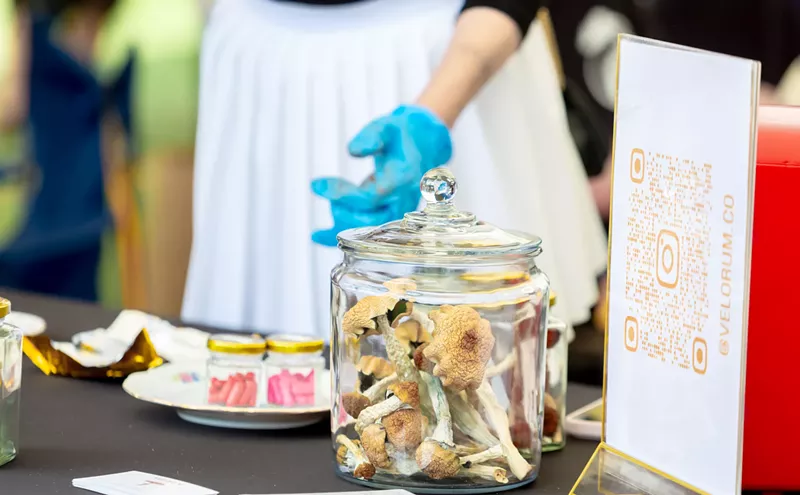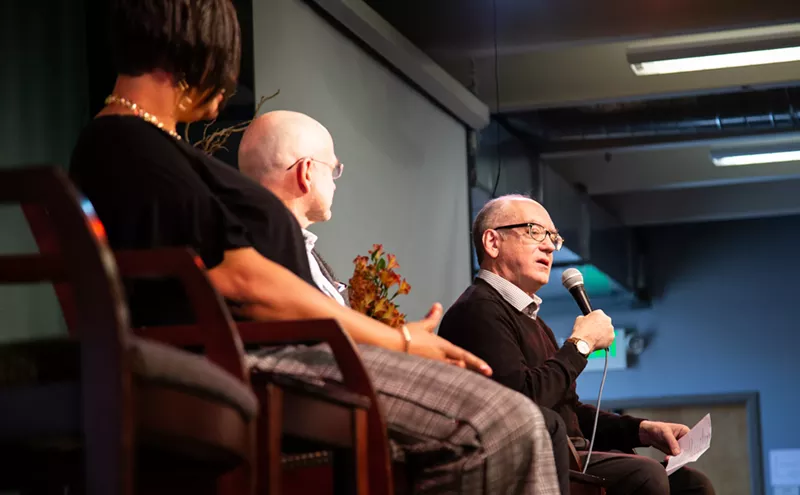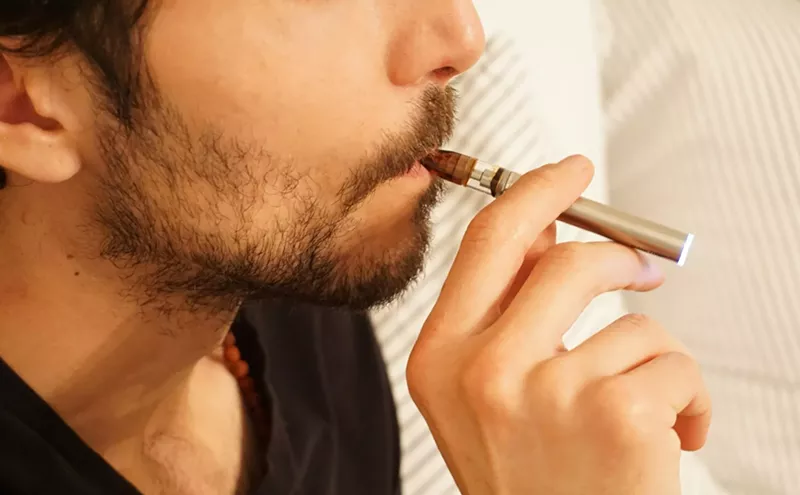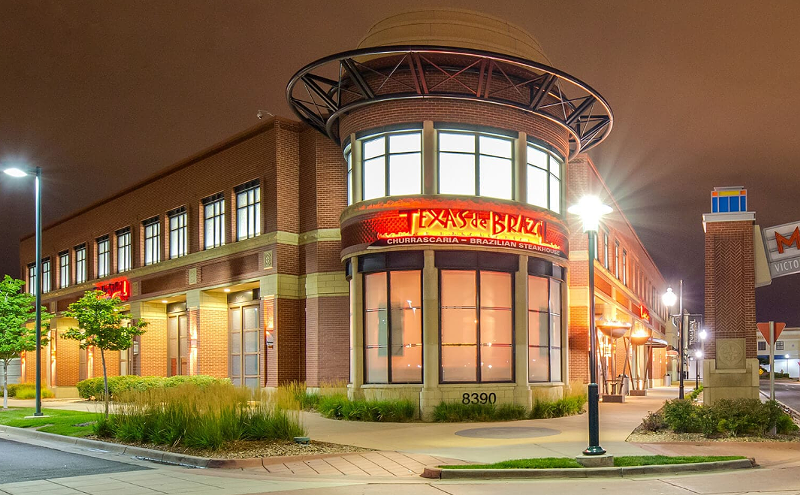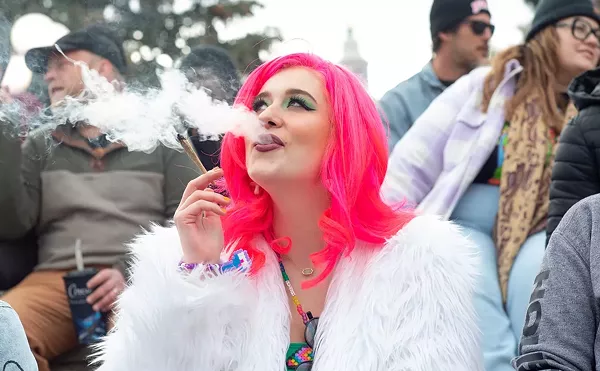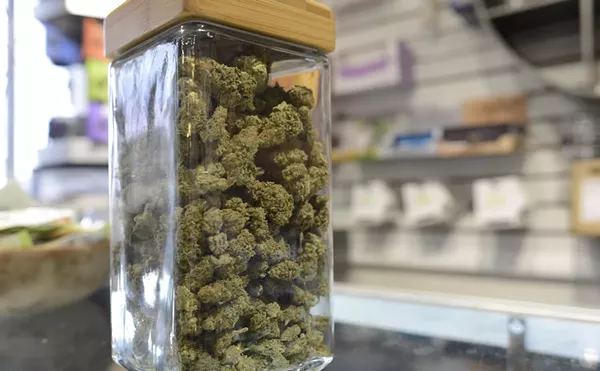Brighton is the latest Colorado municipality to get into the commercial marijuana trade, approving a new dispensary ordinance that will allow four stores to open in town.
Under the measure, two of the dispensary licenses will be set aside for business owners who qualify for social equity designations intended to benefit communities that were impacted by the drug war. Applications for the four stores will be accepted starting March 1, according to a presentation before the final vote by Brighton City Council on Tuesday, February 6.
Members of Brighton's former council approved an ordinance allowing medical and recreational marijuana sales on first reading last October, but the second and final reading was postponed until the four new councilmembers could take office. After a study session in which a handful of changes to the ordinance were discussed, an amended version passed, 7-2.
The approved marijuana ordinance only permits dispensaries in the city, and not growing operations, extraction facilities or infused-product manufacturers. But it also expanded the areas in which marijuana sales could take place, doubling the number of commercial zones available while also qualifying areas zoned for light industrial use. All other zoning districts in Brighton, including commercial office, downtown and local retail districts, would be off-limits.
Councilmembers also removed the initial 1,500-foot buffer zones between dispensaries and modified operation hours from 9 a.m. to 9.p.m to reflect state regulations, which are 8 a.m. to midnight. That was "really the only material change," according to Brighton City Manager Michael Martinez.
Councilman Matt Johnston proposed a successful amendment that shortens the dispensary application processing period from ninety days to sixty. According to Johnston, several marijuana business owners told him they had to rent or buy buildings months in advance before their applications were approved or denied for "a place they might not even be able to use."
Johnston also proposed making more social equity licenses available as the town increases the number of overall dispensaries. As it stands, the town of about 40,000 people allows four dispensaries to operate, but the council can increase that number in the future. Johnston wants to see something close to the current 50 percent rate of social equity ownership remain as the dispensary count "increases so that social equity stores increase at the same level."
This would "give the small players a chance," he added.
Since the ordinance held firm with a four-store limit, the amendment for future ownership priorities couldn't go forward, according to Martinez, but he told the council that the city would "have a plan in place when we do come back to expand [social equity], so rest assured that will happen once we get to that point."
Brighton has not yet set a local tax rate or revenue stream for marijuana sales, but several councilmembers are considering whether to divert some of the city's potential pot tax revenue to law enforcement. Other members would prefer that the tax revenue go into Brighton's general fund, which is available for a broader roster of expenses and projects, including law enforcement.
Martinez estimates somewhere between $200,000 and $500,000 per year from dispensary sales in Brighton, depending on how many stores are operating.
"This isn’t going to be a significant windfall for the community," he said during a January 23 study session. "We really don’t know what it’s going to bring in.”
Mayor Greg Mills was one of the two "no" votes on the ordinance, questioning the need for a local pot industry as marijuana sales and employment continue to fall. After increasing for seven straight years to a record $2.2 billion in 2021, dispensary sales have been falling in Colorado, hitting just over $1.5 billion for 2023. Record-low cannabis prices and a 30 percent decline in employment have also hit Colorado pot businesses during that span.
"I know I'm probably in the minority at this point," Mills conceded, "but I've said my piece."
Councilman Jim Snyder said he was "really torn," but ultimately approved the measure, saying that regulating marijuana sales in Brighton was better than an underground market.
"The places that we've approved this for aren't right in the face of our retail. They're not in the face of our schoolchildren," he added. "I believe when you weigh everything out on both sides, it's the right thing to do for our community."

Audio By Carbonatix
[
{
"name": "GPT - Billboard - Slot Inline - Content - Labeled - No Desktop",
"component": "23668565",
"insertPoint": "2",
"requiredCountToDisplay": "2"
},{
"name": "STN Player - Float - Mobile Only ",
"component": "23853568",
"insertPoint": "2",
"requiredCountToDisplay": "2"
},{
"name": "Editor Picks",
"component": "17242653",
"insertPoint": "4",
"requiredCountToDisplay": "1"
},{
"name": "Inline Links",
"component": "18838239",
"insertPoint": "8th",
"startingPoint": 8,
"requiredCountToDisplay": "7",
"maxInsertions": 25
},{
"name": "GPT - 2x Rectangles Desktop, Tower on Mobile - Labeled",
"component": "24956856",
"insertPoint": "8th",
"startingPoint": 8,
"requiredCountToDisplay": "7",
"maxInsertions": 25
},{
"name": "Inline Links",
"component": "18838239",
"insertPoint": "8th",
"startingPoint": 12,
"requiredCountToDisplay": "11",
"maxInsertions": 25
},{
"name": "GPT - Leaderboard to Tower - Slot Auto-select - Labeled",
"component": "17676724",
"insertPoint": "8th",
"startingPoint": 12,
"requiredCountToDisplay": "11",
"maxInsertions": 25
}
]



